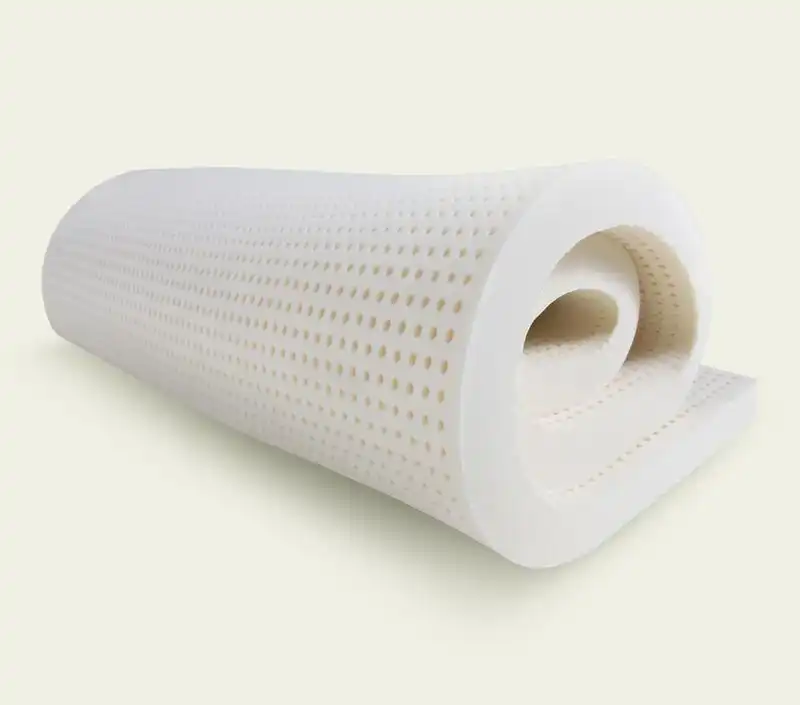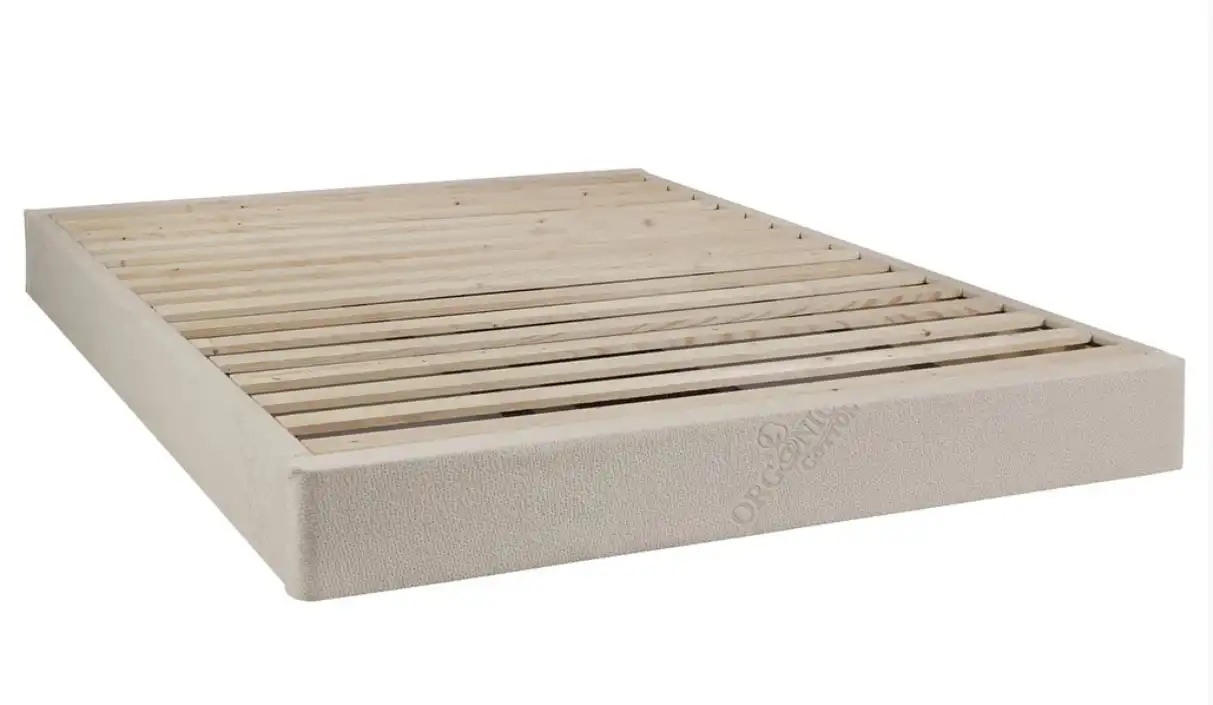How to Fix a Sagging Mattress?
Sagging mattresses are one of the most common household problems. They're also one of the easiest to fix, with a variety of solutions that can be done at home.
The key is to know how much sagging is too much. As you sleep on your bed day after day, it may start to sag in certain places more than others. If you've noticed this happening, there are steps you can take to minimize or even eliminate it entirely.
Below are some ways to fix a sagged mattress without having to invest in an expensive new one just yet:
Disclaimer: As an Amazon Associate I earn from qualifying purchases.
Buy a Mattress Helper
We've found a simple yet effective solution to lift an old, saggy mattress into a more comfortable position called Mattress Helper. This sagging mattress support made from polyurethane works best if placed on a flat box spring or platform bed frame beneath your existing sagging mattress for optimal comfort and firmness while supporting proper spinal alignment all night long.
When choosing the right size, remember that it's designed to be placed under the sagging area, not the entire mattress.
The mattress helper lifts your sagging mattress and gives it a fresh new appearance by restoring the lost support from beneath.
Use a Mattress Topper
A new mattress topper can make your sagging mattress more comfortable because it provides an extra layer of cushion. There are many different types of mattress toppers, ranging from memory foam to wool and latex, but we recommend using organic mattress toppers for your health and safety.
To reduce the effects of your sagging mattress, we recommend choosing a thicker mattress topper that are 3 inches or higher made from dense materials, such as natural latex. A thick topper will provide more support and will make your mattress surface more even. It will also help you prevent premature sagging of your new mattress.
Materials: OEKO-TEX certified latex and GOTS certified organic cotton
Available sizes: Twin, Twin XL, Full, Queen, King, Cal King
Rotate the Mattress
Rotating your mattress regularly will help to prevent premature mattress sagging, but before you do it, make sure that your mattress manufacturer allows it. Rotating your bed causes the areas that normally take most of the weight to move all around your bed.
To rotate your mattress correctly, simply move it from head to foot. Be sure not to flip your mattress, unless you´ve got a flippable mattress. Most modern mattresses are meant to be used only on one side, so flipping them may result in poor comfort and an increased risk of damage to the bed.
Clean Your Mattress
Sometimes sagging is the result of old stains and dirt that have accumulated over time. To fix a sagging mattress, you may simply clean it with a vacuum cleaner and remove the old stains with a stain remover.
Using a waterproof mattress protector over your sagging mattress before you put sheets on it will also help prevent future dirt from getting inside.
Replace the Mattress Foundation
Sometimes your mattress foundation can contribute to your mattress sagging. It happens when there are weak spots in your foundation or when it´s not fitted properly to the size of your mattress. If you have a wooden bed, check for any signs of damage. That may include loose boards or broken joints that could cause sagging problems over time.
A good solution is to replace the whole foundation with a new one. This will help distribute your weight evenly and reduce any sagging that you might experience. We recommend using natural mattress foundations made from solid wood, metal and upholstered with organic cotton to reduce your exposure to toxic chemicals normally found in mattress foundations and box springs.
If you're not sure which foundation style to choose, it's best to check with the manufacturer of your mattress. Some manufacturers specify the minimum acceptable distance between support slats, which can affect your mattress's warranty.
Materials: FSC-certified sustainable wood, not chemically treated, Organic cotton cover
Supports up to 1200 lbs of weight
Wedge the Sagging Areas
If you can't replace your mattress foundation and you know where the problem areas are, try placing a plywood board or thick book under them before going to bed on those nights. If done correctly, this strategy can add support to the mattress in those weak spots and prevent them from sagging even more.
However, it may not be effective if the problem is severe and if it works, it's only a temporary solution to your problem as the damage in your foundation is likely to keep getting worse.
Use Pillows
Using extra pillows in areas where your mattress is sagging can be a temporary solution to fix a sagging mattress. It will raise and support your body weight and reduce the effects of sagging while you're sleeping on those areas.
This might be a good option for people who sleep alone or whose partner doesn't mind sharing a bed with extra pillows. If you want to use pillows to reduce sagging, be sure to choose those with good shape retention, such as shredded latex or memory foam.
Check Your Mattress Warranty
Many mattress warranties include guarantees against sagging. If you think your warranty might cover your sagging mattress, give the manufacturer a call and ask about it. They will likely want to inspect your mattress before deciding whether or not they are willing to replace it for free or at a cost.

What Causes Mattress Sagging?
Your mattress may start sagging for the following reasons:
What Does a Sagging Mattress Do to Your Back?
A sagging mattress can cause back pain because it does not support your body correctly. Poor support can cause you to sink into the mattress, causing pain in your back, hips, and shoulders. A sagging mattress usually causes more problems than it solves, so if you sleep on one for longer than a few months, it's time to buy a new mattress.
Your mattress should provide a comfortable surface that supports your body and distributes weight evenly for optimal sleep quality.
If you're feeling aches and pains in the morning after waking up or you suffer from chronic back pain, one of the first things you should do is check out your bed. If it's sagging, then it no longer provides adequate support for you to sleep soundly.

How Long Does It Take for a Mattress to Sag?
A decent memory foam bed will last for 8-10 years on average, but an ordinary mattress sags after a few years of use. An innerspring mattress will start to sag after about 7 years.
The more you weigh, the faster your mattress will sag. However, a high quality latex mattress can last up to 15 years with no sagging, but these are also the most expensive kinds of beds due to the materials that they are made from.
When Should You Replace Your Mattress?
Perhaps instead of wondering how to fix a sagging mattress you should consider replacing your it if it's more than eight years old or if you have tried all the previous strategies and your sagging problems are not improving.
If your existing mattress does need to be replaced, you should pick a new one with high-quality coils that are designed for better weight distribution.
You may also go for a spring-free mattress, such as a latex mattress, that will provide you with the firmness and support that your bed needs.
We recommend buying an organic mattress because they are healthier for your body, provide more support and resilience over the years, and are better for the environment. These mattresses contain no harmful chemicals and are the most durable kind.
Conclusion
If your mattress is sagging, then you really should invest in a new one. You can continue using your old mattress if it's only slightly sagging and you don't mind sleeping on additional pillows or padding. Otherwise, you will definitely want to replace it soon because of the harmful effects that sagging has on your back and overall health.
To learn more about mattresses, beds and other related topics, check out the rest of our site. You can also contact us directly if you have any questions or concerns about sagging mattress problems. We would love to hear from you!




